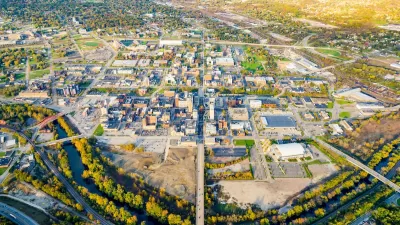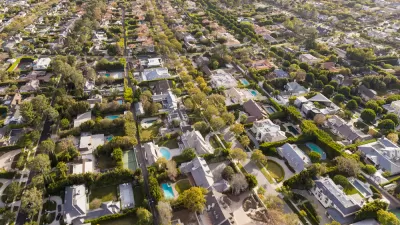Faced with a national housing crisis, it's time for cities to stop letting social mores dictate who can live where.
In Slate, Henry Grabar chronicles the demise of a co-op in Boulder that symbolized a conflict between young adults trying to make ends meet and "the old guard—slow-growth homeowners who moved here decades ago."
In many cities across the United States, groups of friends and acquaintances who can't afford to rent or buy homes on their own are moving into houses together, Grabar writes:
High rents and the limits of the housing stock have forced tenants—a generation of young people and immigrants—into larger, underused homes ill-suited (or too expensive) for America’s shrinking families.
But this common living arrangement is illegal in many cities under occupancy laws limiting the number of unrelated adults who can live together.
By targeting the legal relationship of cohabitants instead of their living conditions, Grabar notes, such ordinances don't protect safety but rather police personal relationships through a particular definition of legal terms like "family" and "household."
"Distinct from overcrowding laws that regulate the amount of space per person, the occupancy law is a widespread modern policy of social preference, not of public health or safety," he writes.
While advocacy has convinced Boulder to begin reconsidering its approach to co-ops, Grabar urges that other adaptations to the housing market that are not university town trends not be thrown under the bus.
Legalizing co-ops won’t do much for the city’s other illegal tenants, especially if it’s part of a bargain that renews enforcement on other illegally occupied residences.
FULL STORY: Full House

Planetizen Federal Action Tracker
A weekly monitor of how Trump’s orders and actions are impacting planners and planning in America.

Congressman Proposes Bill to Rename DC Metro “Trump Train”
The Make Autorail Great Again Act would withhold federal funding to the system until the Washington Metropolitan Area Transit Authority (WMATA), rebrands as the Washington Metropolitan Authority for Greater Access (WMAGA).

DARTSpace Platform Streamlines Dallas TOD Application Process
The Dallas transit agency hopes a shorter permitting timeline will boost transit-oriented development around rail stations.

Renters Now Outnumber Homeowners in Over 200 US Suburbs
High housing costs in city centers and the new-found flexibility offered by remote work are pushing more renters to suburban areas.

The Tiny, Adorable $7,000 Car Turning Japan Onto EVs
The single seat Mibot charges from a regular plug as quickly as an iPad, and is about half the price of an average EV.

Supreme Court Ruling in Pipeline Case Guts Federal Environmental Law
The decision limits the scope of a federal law that mandates extensive environmental impact reviews of energy, infrastructure, and transportation projects.
Urban Design for Planners 1: Software Tools
This six-course series explores essential urban design concepts using open source software and equips planners with the tools they need to participate fully in the urban design process.
Planning for Universal Design
Learn the tools for implementing Universal Design in planning regulations.
Municipality of Princeton
Roanoke Valley-Alleghany Regional Commission
City of Mt Shasta
City of Camden Redevelopment Agency
City of Astoria
Transportation Research & Education Center (TREC) at Portland State University
US High Speed Rail Association
City of Camden Redevelopment Agency
Municipality of Princeton (NJ)





























